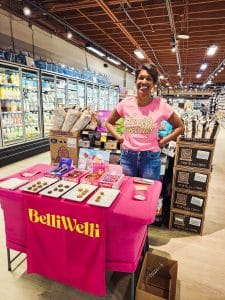
I think we can all agree that product sampling works. The question is – what is the best avenue to get these samples into your consumers’ hands? Is it better to go with larger events, like music festivals and marathon expos? Or are smaller activations like retail demos a better bang for your buck? It really depends on where you are in your company growth and the specific goals you are trying to achieve. Let’s break this down.
Retail Demo Advantages:
-
Lower Barrier to Entry

-
Immediate Purchase Option
With the option for customers to purchase products immediately after sampling, you have the opportunity to offset some of the cost of your marketing efforts during the activation. With events, you are relying on customers to take another step after your interaction, such as redeeming a coupon at a local retailer or making a purchase online before you see a return.
-
Ability to Target Sales in Specific Retailers
If you have limited distribution, retail demos allow you to focus on must-win retailers. For example, if you’re in Whole Foods, but not HEB, it’s likely best to keep your Central Texas marketing budget specific to Whole Foods, or you risk sampling quite a few people whose shopping patterns don’t align with your distribution.
Event Marketing Advantages:
-
More Consumers to Engage
Events tend to have more foot traffic than retail demos. This can be a great opportunity to distribute more samples in one fell swoop. Established brands can take advantage of their brand equity in this situation and sample a new flavor or promote a new product to lots of consumers quickly.

-
Bond with Consumers on Common Interests
Consumers who are at the grocery store aren’t there because they want to be. They are there to buy groceries. Consumers who are at a surf expo or arts and crafts festival are there because they want to be. Event attendees tend to be more receptive to brands they feel share a common interest and often give the brands more time for engagements in these settings.
-
More Options for Branded Experiences
At events, you have more freedom to create a memorable and engaging experience. A branded yoga session, children’s activity center, silent DJ party – the options are endless! Events allow you to create an experience that embodies your brand’s personality.
Both retail demos and experiential marketing events can help a brand increase retail sales, but depending on your specific product and where you are in your journey, one may be more efficient than the other. In general, we recommend events for more established brands with stronger distribution and higher brand awareness.
Want some insights on what would be most effective for your brand? Give us a shout!




